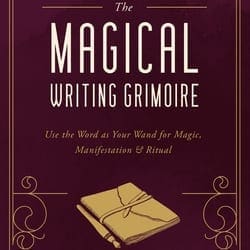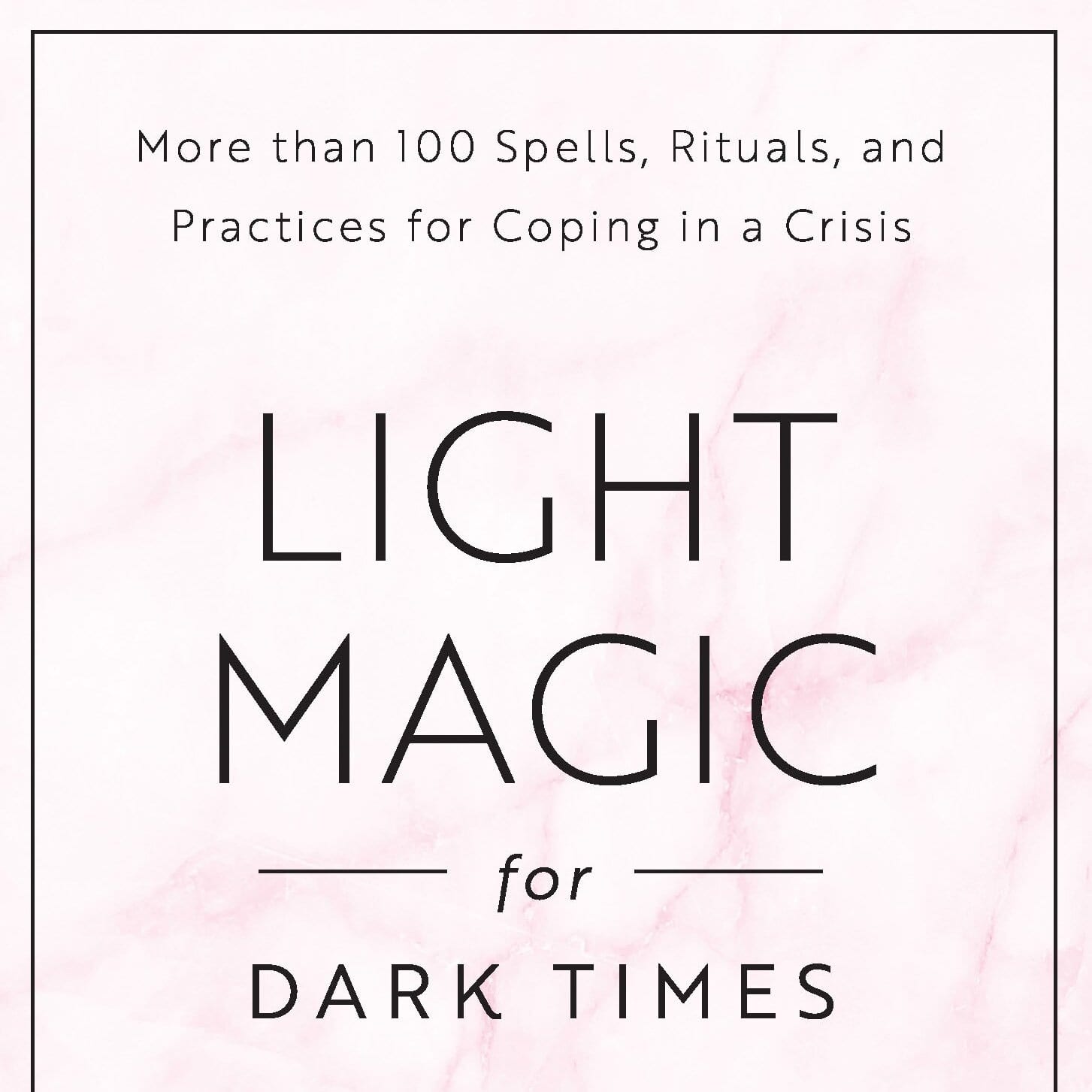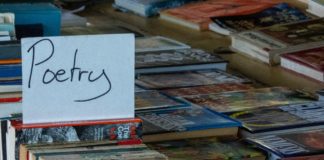
Your writing ritual can turn your words into a powerful connection between poetry and sacredness in your life.
In my forthcoming book, The Magical Writing Grimoire, I explore the link between ritual and writing — how writing can become ritual, why writing is sacred, and ways to use writing as a way to honor yourself, heal yourself, and manifest the kind of life you’d like to live.
The Magical Writing Grimoire was born out of the Writing Magic chapter in my previous book, Light Magic for Dark Times. It was secretly my favorite chapter to write (shh!), and that’s because I was able to include poetry as a tool in rituals and practices for self-care.
I believe that words have always had magical powers, which is why writing is such a powerful thing — whether it’s a hobby, a nightly act of self-care or a profession. Writing can help us put words to our deepest feelings, put action and energy behind our intentions, and create a physical space for our abstract ideas. When we make things physical, we give them a power.
So, if we’re writing about our goals, for example, the act of writing them down gives them a new sort of shell. They become matter. They’re like a spell cast.
Poetry: a Practical Kind of Magic
As I wrote for Venefica Magazine in my piece, Poems as Spells, “Both spells and poems are considered sort of unmeasurable, outside of time and the rules of language and perception; they’re the strange little things we dabble in that end up changing our lives.”
And if we’re writing poetry about our traumas or fears, we’re building worlds of beauty out of suffering — literally trans-morphing how we live with our pain and what that pain does in the world. It doesn’t just hurt; it has the ability to be something more. Maybe someone else will read your words and use them in their own healing journey, for example.
Word Origins Contribute to Language’s Power
Words have always been sacred, so let’s look first at the connection between divinity, language, magic, and power with a few examples of how it’s all been woven through history.
Look at the word Scriptura (Latin for writing or scripture). Scriptures provide meaning and insight to its reader, as well as a way to connect with or ponder divinity.
One of the root words for Scripture is skrībh-, a Proto-Indo-European root meaning to cut, sift, or separate — especially in wood or clay. What’s so interesting is that the act of writing here is so natural, so inherently connected to the earth. It’s how our ancestors communicated, but it’s also an act of direct connection with and to the earth.
Word as power, or word as magic is everywhere. If you look at the word Abracadabra, it’s been traced back to Hebrew as “I will create as I speak” and to Aramaic as “I create like the word.” The word itself builds worlds, casts a spell, or sets a thing into motion.
In Ancient Egypt, Thoth was worshiped as the deity presiding over writing, magic, wisdom, and the moon. And then there was the splendid Seshat, the goddess of writing, libraries, books, and an ally to the dead. Seshat and Thoth’s entangled associations with words and magic speak to humanity’s inherent veneration for language magic.
For these reasons, scribes were so respected in Ancient Egypt, held in high regard. Scribes were said to offer a single drop of their ink each day in Thoth’s name. How amazing is that?
Carry It With You
Many Ancient Egyptians carried amulets inscribed with written spells, which would attract their wishes, goals or intentions or provide protection.
The word “spell” itself, which is defined as “to tell” or “an utterance,” became associated with magic in the Middle Ages, as if, yet again, to speak something is to cause tangible change. As magic does.
The next time you are writing a poem, ask yourself the following questions:
- Which words can I include that conjure or summon healing, power, bravery or resistance?
- Will writing my poetry create beauty out of darkness? How does this make me feel?
- What would a poem-as-magic-spell look like? Can I state incantations within my poetry? Can I write my visions or goals into poems?
- Should I carry a poem around with me to remind me of my personal power?
- Can my poem be a mantra or incantation I speak aloud when I need to feel something specific (like hope or gratitude) or conjure a memory?
- What is the energy behind this poem? What energy do I want to put out into the world with these words?
Feature Photo by Allef Vinicius on Unsplash

















